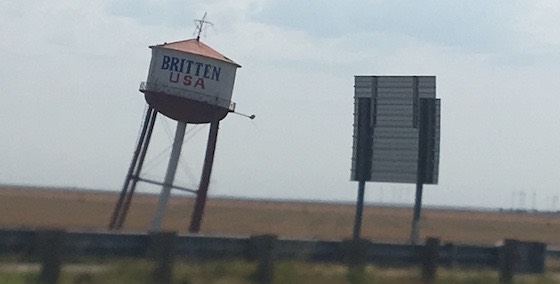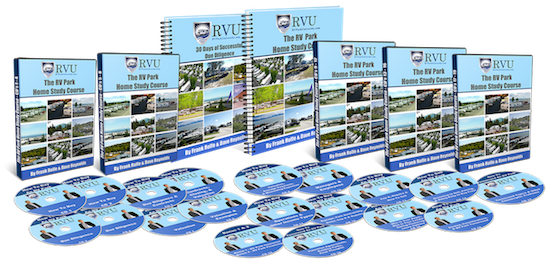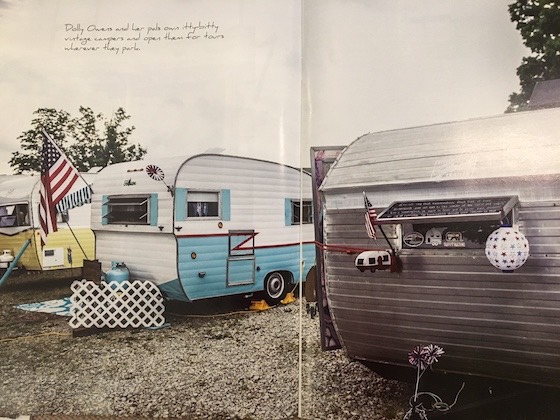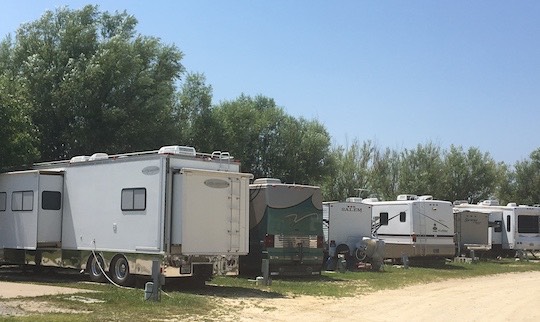So you’re looking at an RV park for sale, and you’re interested in making an offer on it. As part of that process, you have to produce a written contract for the seller to sign. So where do you begin to approach the RV park contract?
Must have an examination and financing contingency
Any RV park contract must contain a due diligence and financing contingency. Typically, the due diligence period lasts for 30 days, and the financing for 30 or 60 days (60 is preferable). This allows you to examine every part of the deal to make sure that it can deliver as expected and, after the diligence period ends, locate a bank and complete the loan and, if that fails, cancel the deal and get your earnest money back. You should never enter into any contract that does not allow for due diligence and financing and, failing that, return of your earnest money.
Diligence period must be long enough to allow for third party reports
Let’s say that the seller says “I won’t give you 30 days of diligence, but I’ll give you 3 days”. Can that work? Typically not. Although you can shorten your diligence window in certain circumstances, remember that you have to obtain at least one third-party report during this time: the Phase I Environmental report. This is the analysis that gives you assurance that the property has no environmental pollution – an essential item for any buyer. Since you have no control over the time frame involved, you would need to coordinate your diligence – at a bare minimum – with the time required to get this completed by the environmental engineer.
Must be non-recourse on the part of the buyer
You should never sign any real estate contract that requires “specific performance” on the part of the buyer. “Specific performance” means that if you fail to drop the deal during the required time in diligence and financing, you are then required to buy the property, even if you don’t want it. It’s a crazy concept that any buyer would ever agree to such a thing – so make sure you never do. That’s not to say that the contract should not contain “specific performance” on the part of the seller. They must have specific performance. Without it, they could walk away from the deal at any time up until the minute of closing.
Must be at a price at least around 20% of what you are willing to pay
We get asked all the time “should I negotiate the deal hard on the front end, or during due diligence?” While there’s no right or wrong answer to that, we have found that it’s really hard to renegotiate a contract down more than 20% once you have it under contract. So if you are trying to buy at RV park and the seller wants twice what you think it’s worth, then you should hold off tying it up under contract, because your ability to get a 50% price reduction later is remote. In those cases, just keep calling the seller periodically to see if they have changed their mind and lowered their price.
Must be easy to sell to
When working with an RV park owner, it’s important to be “easy to sell to” which basically means that you give the seller no reason not to like and work with you. For example, if you tell the owner that you will come by the property at 1 PM, you better get there at 12:30 and sit in your car, as being late would make the seller think “I don’t think I can trust this person” or “this person does not think I’m important”. You should always consider the seller a VIP, and be very careful about their interests.
Don’t underestimate “bonding”
“Bonding” is the relationship between the seller and buyer which evolves and often propels a deal into an arena where it’s not all about money. Since many deals can hit one or two bumps during diligence and financing, having a good relationship with the seller is essential. So how do you “bond” with a seller. Spend time with them, either by phone or in-person. Our favorite opening line “so how did you come to own this RV park?” The answer can take hours, and don’t rush the seller at all. Not only is “bonding” extremely important, but you can also learn a great deal about the property – and the RV park business – through such sessions.
Focus on the win/win
We are firm believers in “win/win” deal making, which means only engaging in transactions in which the buyer and seller walk away happy. When you are devoted to this style of living, the seller becomes more of a client or family member and you forge an even stronger bond. Watch out for the seller’s interests and they will reciprocate. For those who prefer “win/lose” negotiating (where the buyer thinks that they got the best deal possible at the expense of the seller) we would remind you that most RV park owners have no debt and a cash-flowing business, so they are rarely willing to be pushed around.
Don’t be afraid to renegotiate when necessary
All that being said, you have to remember that the price you pay for the RV park determines its future success or failure, and being nice does not mean being shy on pushing for the price you need. If there are material changes in the way the park will perform that are detected in diligence, then you should ask for a price reduction that is proportionally similar. If you strive for a “win/win” deal, then don’t let the seller take advantage of you because “win/win” is a two-way street, and you can’t do all the work. The seller has to participate in being reasonable.
Conclusion
Putting together a successful contract for an RV park is all about giving yourself sufficient “outs” in case you need them, avoiding legal traps, forging a bond with the seller, and re-negotiating when necessary.






